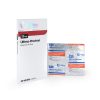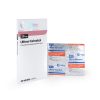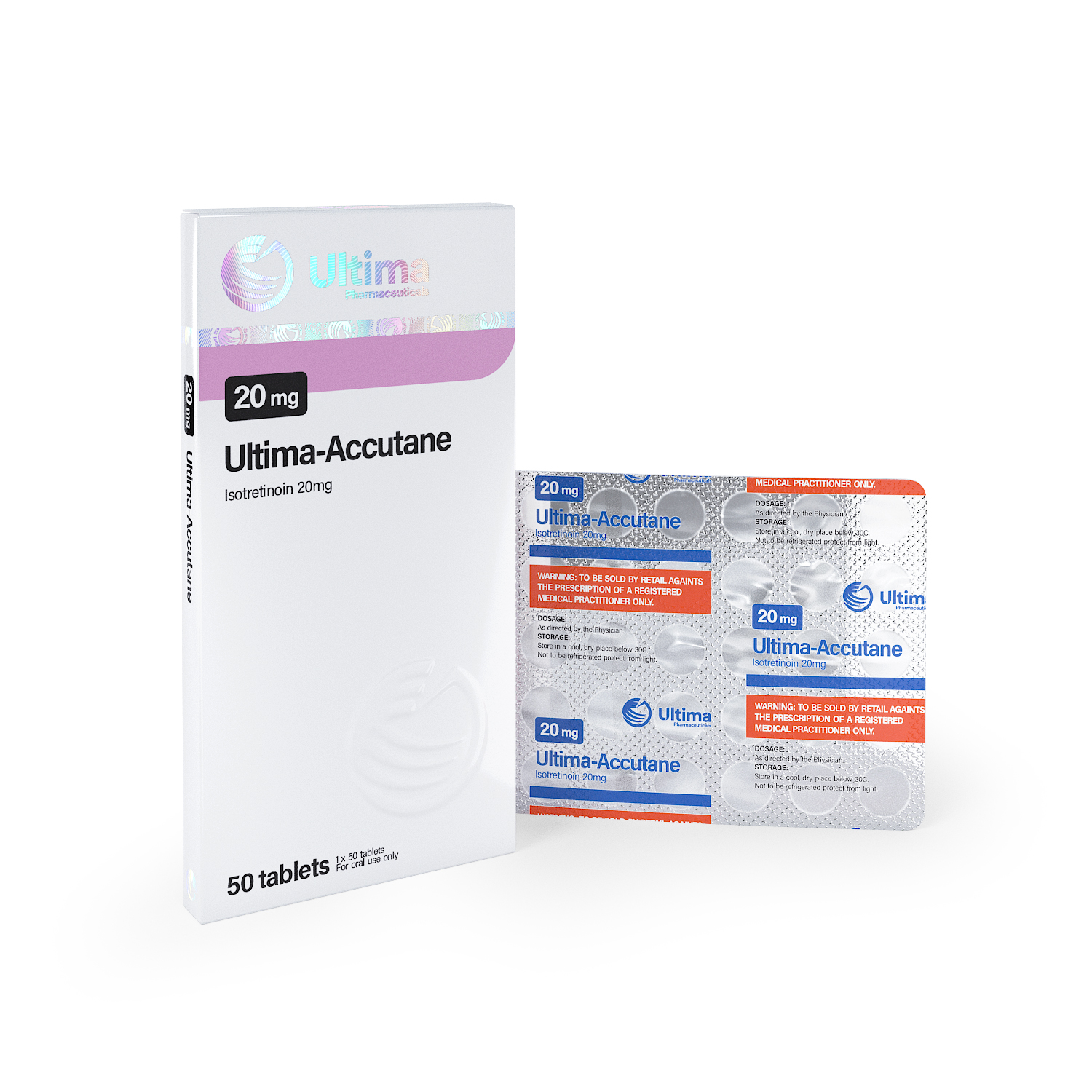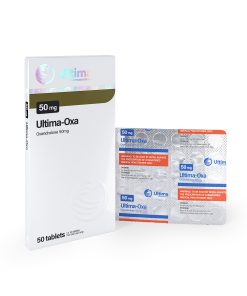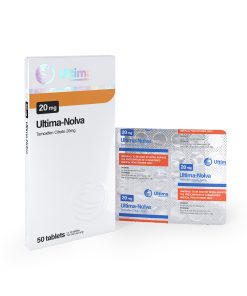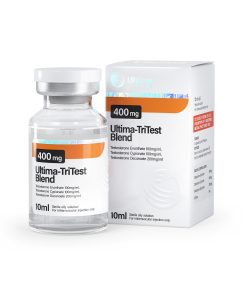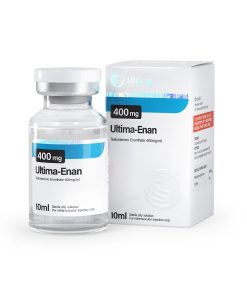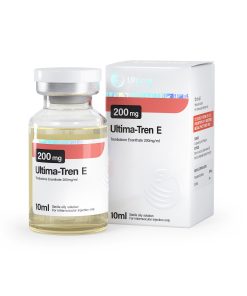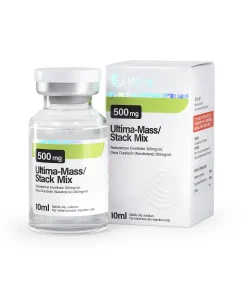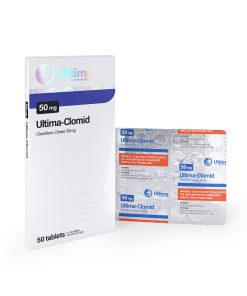Ultima-Accutane 20mg Overview
Composition
Ultima-Accutane 20mg contains isotretinoin, a powerful medication primarily used for the treatment of severe acne (particularly cystic acne) that has not responded to other treatments. Each capsule contains 20 mg of isotretinoin.
How It Works
Isotretinoin is a derivative of Vitamin A, and it works by targeting the root causes of acne. It reduces sebum production in the skin, decreases the size and activity of sebaceous glands, and prevents pores from becoming clogged with excess oil. This helps to reduce acne outbreaks and prevent the formation of new blemishes. Additionally, isotretinoin has anti-inflammatory effects, which also contribute to its effectiveness in treating acne.
Benefits for Individuals with Acne
- Severe Acne Treatment: Ultima-Accutane 20mg is most effective for individuals with severe, cystic, or nodular acne that has not responded to traditional treatments like topical creams or antibiotics.
- Long-Term Improvement: A full course of isotretinoin can result in long-term or even permanent clearing of acne in many patients.
- Prevention of Acne Scarring: By reducing active breakouts, isotretinoin can help prevent permanent scarring that may occur from severe acne.
- Reduction in Sebum Production: The drug works to reduce oil production in the skin, which is one of the primary causes of acne.
Importance in Acne Treatment
Ultima-Accutane 20mg is often prescribed after other treatments for acne, such as topical treatments or oral antibiotics, have failed. It is considered a last-line therapy for severe acne and is known to be one of the most effective medications available for acne management.
Typical Dosage Guidelines
- Beginner
- Dosage: 20-30 mg per day
- Duration: 4-6 months (varies by individual response)
- Purpose: To assess tolerance and achieve initial improvements in acne.
- Intermediate
- Dosage: 30-40 mg per day
- Duration: 4-6 months
- Purpose: For those seeking more significant improvements and effective acne clearance.
- Advanced
- Dosage: 40-60 mg per day (under supervision)
- Duration: 4-6 months
- Purpose: For maximum results, especially in patients with severe or resistant acne.
Administration
Ultima-Accutane is taken orally with food, as it is better absorbed when consumed with a fatty meal. The dosage is typically split into two doses per day (morning and evening) to help maintain steady blood levels.
Potential Side Effects
- Skin Dryness and Irritation: The most common side effects include dry skin, lips, and eyes. Moisturizers and lip balms are often recommended to help manage these effects.
- Increased Sensitivity to Sunlight: Isotretinoin can make the skin more sensitive to sunlight, so it’s important to avoid prolonged sun exposure and use sunscreen.
- Joint and Muscle Pain: Some users report aches and pains in joints and muscles, especially during physical activity.
- Hair Thinning: A small percentage of users may experience temporary hair thinning or loss during treatment.
- Elevated Liver Enzymes: Regular blood tests are necessary to monitor liver function as isotretinoin can cause liver enzyme elevations.
- Mood Changes: Some users may experience mood swings, anxiety, or depression. It’s important to discuss any mental health concerns with a healthcare provider.
Mitigating Side Effects
- Hydration and Moisturizers: To manage dry skin and lips, use hydrating skincare products regularly.
- Sunscreen Protection: Apply sunscreen daily to avoid sunburn and prevent further skin irritation.
- Regular Monitoring: Blood work to check liver function, lipid levels, and overall health is critical throughout the treatment.
- Avoid Pregnancy: Isotretinoin is highly teratogenic (causes birth defects), so it is essential that women avoid pregnancy during treatment and for several months afterward. Pregnancy tests are often required before and during treatment for women of childbearing age.
Conclusion
Ultima-Accutane 20mg (isotretinoin) is a highly effective medication for severe, treatment-resistant acne. It works by reducing sebum production and preventing clogged pores, ultimately leading to significant acne clearance and long-term improvement. However, due to its potential side effects, it should be used under the supervision of a healthcare provider, with regular monitoring for safety.
If you’re considering starting isotretinoin therapy, it’s essential to have a thorough discussion with your healthcare provider about the benefits, risks, and necessary precautions.
Related products
Anavar
Proviron
Ultima
Ultima
Mix Steroids

